Under military rule, young Burmese speak of destroyed dreams, futures snatched away
Seven months after a military coup, experts weigh up whether democracy and civilian rule can return to Myanmar, while citizens give vent to hopelessness and fears for the future on the programme Insight.
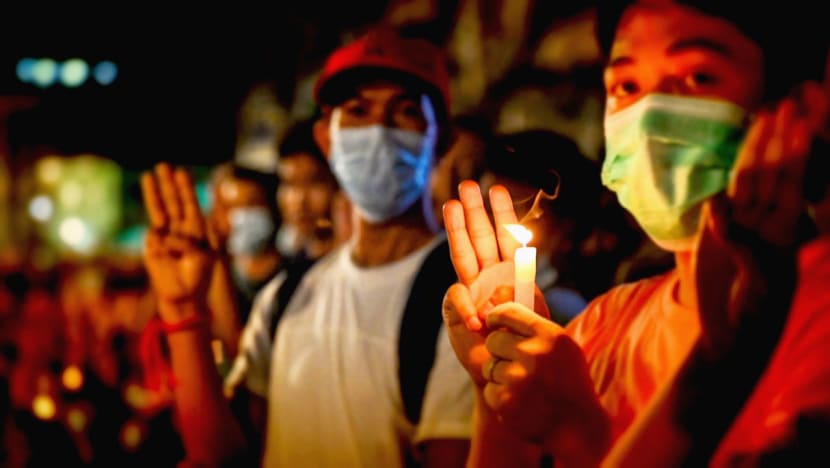
The coup has upended the plans and dreams of many people in Myanmar.
*Names have been changed to protect the individuals’ identities.
YANGON: Eight months ago, artist Zar Ni* was, in his words, just like every other young man. The 21-year-old was busy making plans and wanted to study abroad after the COVID-19 pandemic was over.
“I had so many things I wanted to do,” he said.
Then on Feb 1, the Myanmar military seized power from the civilian National League for Democracy (NLD) government and detained its de facto leader Aung San Suu Kyi and others.
Zar Ni was shocked, then upset and unsure of what to do next. He now feels as if his future has been “snatched away”.
“I had so many plans ahead. They’ve destroyed all my dreams,” he told the programme Insight.
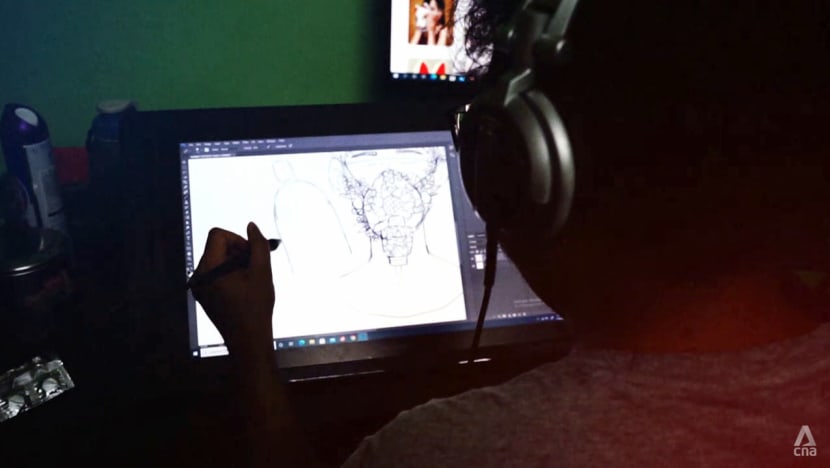
He is not alone in feeling a sense of loss. Grocery shop owner Ko Toe* said his countrymen have “lost all hope”.
Doctors and hospital beds are in short supply as COVID-19 rages. Myanmar has seen many public servants, including healthcare workers, going on strike in protest at military rule, joining a widespread civil disobedience movement.
“Our healthcare situation is hopeless. We’re helpless,” said Ko Toe, 49, who spoke on condition of anonymity.
“You can’t go to hospitals. You’d be denied entry. You try to treat yourself at home with oxygen. It’s almost impossible to get a doctor to see a patient.”
Adding to the pain are the rocketing prices of basic goods such as coffee and detergent, he said.
According to journalist Ko Than Lwin*, “there are fights everywhere”. “We’re in a civil war now,” said the 40-year-old, stressing that the people do not accept military rule and armed oppression.
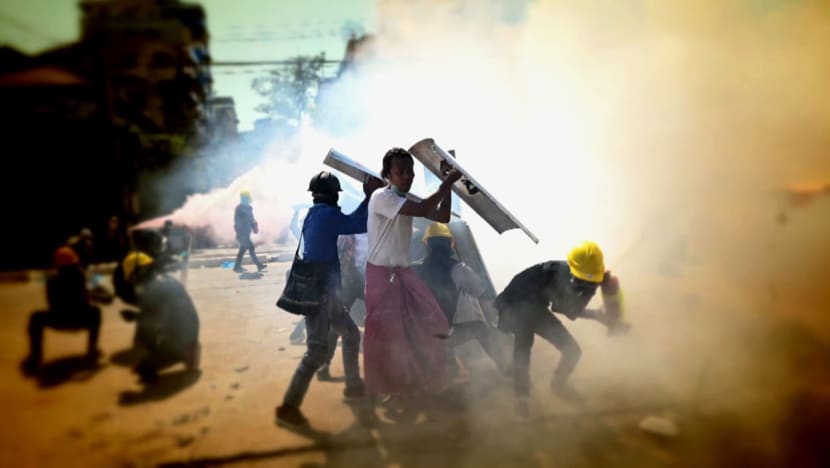
On a personal level, he feels his future is “very dim”. “When I look forward, all I see is darkness,” he added.
The junta seized power citing allegations of fraud in the November 2020 parliamentary elections won by the NLD.
Since the coup, amid the protests and resistance from insurgent groups, the military has killed over 1,000 civilians, according to human rights group Assistance Association for Political Prisoners.
The country is also battling a third COVID-19 wave. There have been more than 406,000 cases and over 15,000 deaths in Myanmar since the pandemic began.
Related articles:
TIMING FAVOURS COUP LEADERS?
Political observers who spoke to Insight have mixed views on whether democracy and civilian rule can return to Myanmar.
“I don’t think the Tatmadaw is prepared to give the civilian democratic group another shot at running Myanmar,” said Singaporean diplomat Ong Keng Yong, former secretary-general of the Association of Southeast Asian Nations (Asean). The Tatmadaw is Myanmar’s armed forces.
“The timing of this meltdown in Myanmar is to the advantage of the people who perpetrated this military coup.
“Maybe they didn’t see so far, but as things (went) along, they became a bit more astute in exploiting the overall geopolitical situation to their advantage.”
WATCH: Insight 2021/2022 — episode 19: Myanmar in crisis (47:23)
Will the civil unrest and worsening health crisis plunge Myanmar deeper into its darkest era?
The United States has imposed sanctions on individuals linked to Myanmar’s military regime and on companies that have provided support for the military.
On a recent trip to the region, US Vice-President Kamala Harris also reiterated support for people in Myanmar working towards a return to democracy.
But the US’ response has been “muted”, mainly because of other issues it must deal with such as the pandemic, said Maitrii Aung-Thwin, deputy director of the National University of Singapore’s Asia Research Institute.
“I don’t think they have the bandwidth … to focus their resources and attention on Myanmar.”
China, which shares a border with Myanmar, wields influence as a major trading partner, perhaps more than Asean.
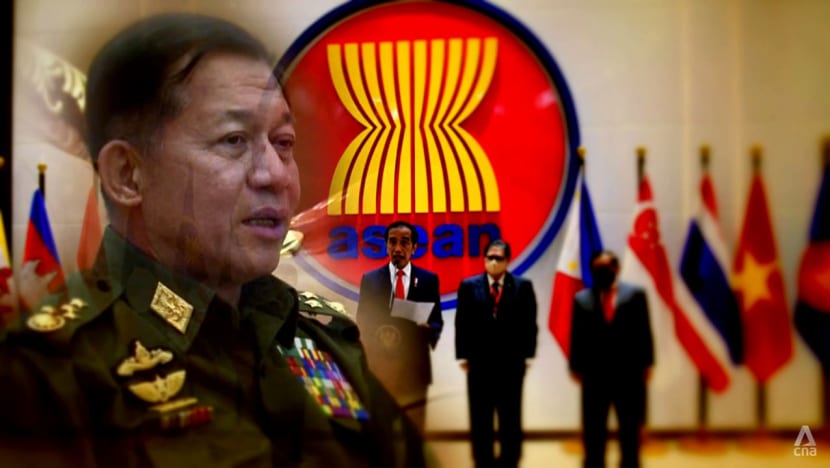
And Beijing could do more to influence the Tatmadaw to restore order, such as by abstaining during United Nations Security Council discussions on what should be done about Myanmar, said Simon Adams, executive director of the US-based Global Centre for the Responsibility to Protect.
But on Feb 2, for example, China blocked a UN Security Council statement condemning the coup.
Foreign-imposed regime change is against China’s traditional foreign policy behaviour, noted Enze Han, an associate professor in the University of Hong Kong’s politics and public administration department. “I don’t think China can do more,” he said.
Related story:
Political scientist Panitan Wattanayagorn of Thailand’s Chulalongkorn University believes Myanmar needs a new power-sharing plan based on compromise and “transitional structures” to move forward.
“No one can win totally,” he said. “Democracy isn’t a zero-sum game. You win some, you lose some, it’s a positive sum. And negotiators must lay that down on a table for all parties to accept.”
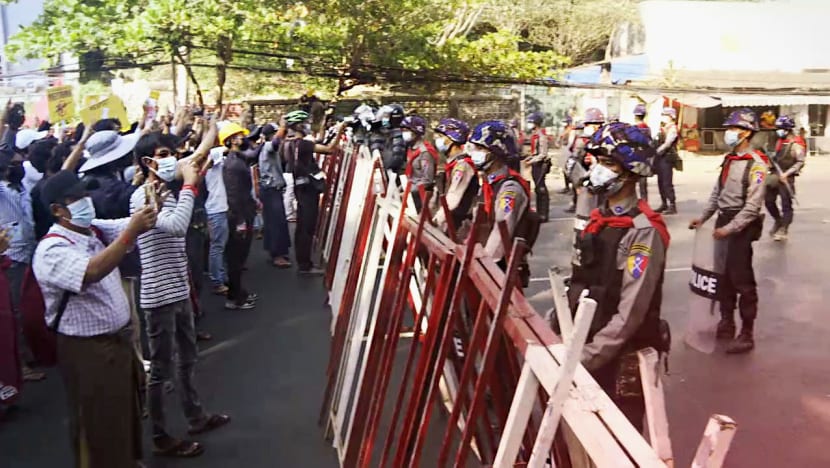
‘FREE-FALLING’
There is little sign of compromise so far, however, and there are divergent views on the ground.
The junta declared itself Myanmar’s caretaker government on Aug 1, and Senior General Min Aung Hlaing was named its prime minister.
Although he promised to hold elections and lift the current state of emergency by August 2023, he has branded his opponents in the National Unity Government — a group including ousted lawmakers challenging the regime’s legitimacy — “terrorists”.
Related stories:
Primary school teacher Daw Marlar*, 33, disagrees with the civil disobedience movement and believes both sides must reach a compromise, as the country “can’t function without a government or a military”.
But artist Zar Ni and 29-year-old medical doctor Nay* are opposed to negotiations with the military.
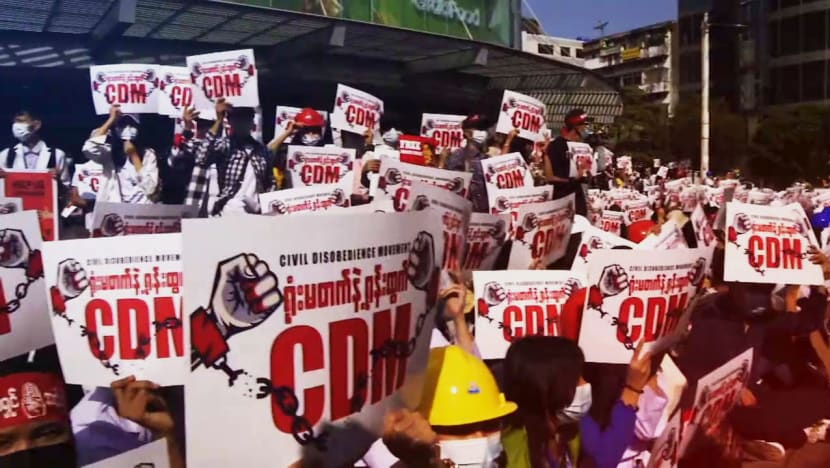
“After everything that’s happened, even if they reach some kind of compromise, I don’t think common people like us would accept that,” said Nay, who is part of the civil disobedience movement but has been secretly making house calls to treat patients.
Our country is currently free-falling, becoming a failed state. We’ve been building and improving Myanmar for a decade. But in just six short months, it’s already ruined.”
In 2011, the country had its first civilian president and civilian government after nearly 50 years of military rule, which gained it international credibility, billions of dollars in capital and — particularly after the 2015 elections — relative freedom for its people.
Myanmar’s economy is now on the verge of collapse, seven months after the military coup. The World Bank expects an economic contraction of 18 per cent.
“I’m afraid our country will end up a useless state, with millions of homeless, devastated people,” Nay said.
Watch this episode of Insight here. The programme airs on Thursdays at 9pm.

















